
One of our missions is to lead the security industry toward a greener future, a goal that shapes many of our actions. For the past five years, we have undertaken annual carbon audits with sustainability experts Alectro.
This process forms the foundation of our sustainability agenda and allows us to:
– Establish a baseline
– Set ambitious targets grounded in data
– Deploy strategic reduction initiatives
– Quantifiably track performance over time
– Identify opportunities to operate more eco-consciously
The 2023 audit findings showcase the tangible results of our steadfast commitment to sustainability.
Please note: all figures covered in this report are emissions The Keyholding Company is responsible for, across Scopes 1-3. They do not take into account our service partner network’s vehicle emissions, which we factor into our total carbon expenditure for annual carbon offsetting purposes.
Analysing the 2023 footprint
A decrease in our total emissions from 272.8 tCO2e in 2022 to 258 tCO2e in 2023 is positive, but there is even more to the story in how we operate and focus on reducing our carbon footprint.
Scaling our operations to meet growing customer demand, hiring new employees and increasing our service lines are all positive signs of a thriving business. The true measure of sustainable success, however, is whether we are driving down emissions relative to those increasing economic factors across all three emissions scopes:
– Scope 1: Direct emissions from owned or controlled sources like our vehicle fleet
– Scope 2: Indirect emissions from purchased energy
– Scope 3: All other indirect emissions from sources like employee commuting and procurement

That is precisely what the 2023 audit reveals. Despite commercial growth of ~25%, we achieved a year-on-year reduction in per-employee emissions from 1.65 tCO2e to 1.33 tCO2e (a key metric we are focused on minimising). Even more impressively, we decreased our overall carbon footprint by 5% compared to 2022 after implementing specific sustainability initiatives.
While Scope 2 and 3 indirect emissions saw a slight increase due to operational factors, we successfully reduced our Scope 1 direct emissions by 18%.
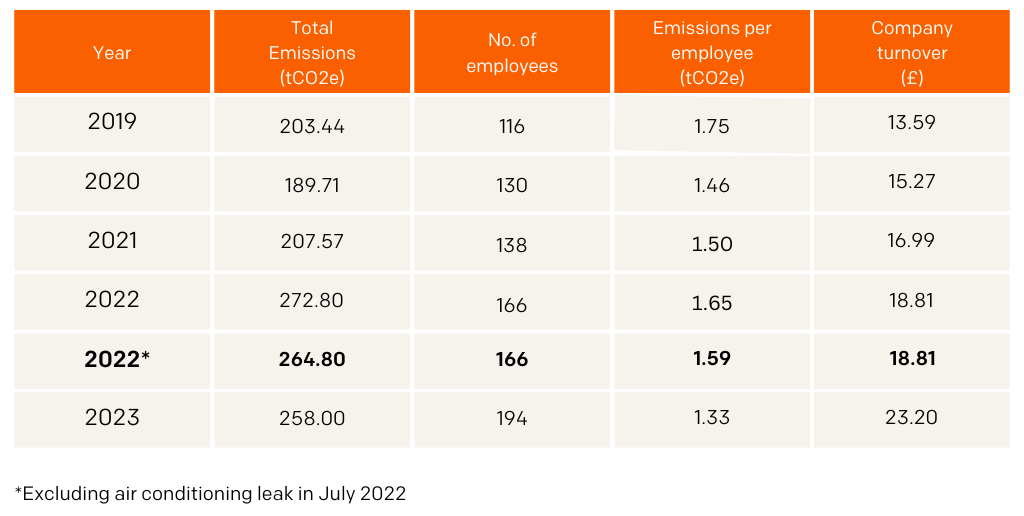
Reducing carbon emissions with electric vehicle expansion
A major highlight in 2023 was further adoption of electric vehicles for our London Operations fleet. From 2022 to 2023, our total operational mileage increased by 11%, while simultaneously increasing the percentage of fully electric miles covered from 22% to nearly 28%. This initiative alone had a clear impact on reducing our carbon output.
The current state of play with electric vehicles
Since we incorporated electric vehicles (EVs) into our Workspace Group operations, we have made significant progress towards more sustainable service delivery and the fleet has now expanded to include BMW CE04 electric motorbikes.
We have also recently purchased a Zero DSR/X, which will be the first electric motorbike specifically dedicated to TKC operations.
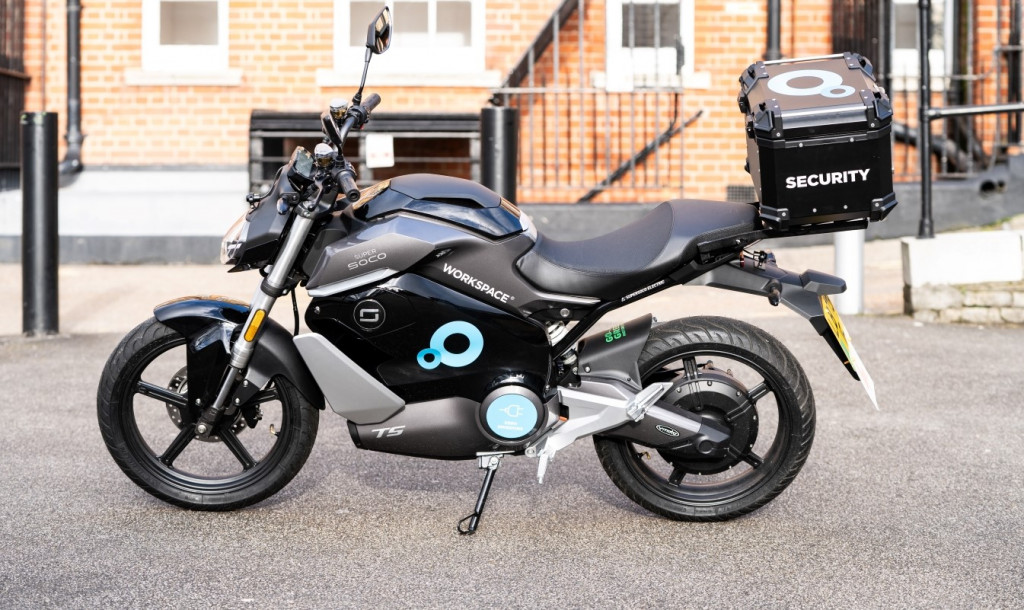
Initiatives beyond EVs
But EVs were not our only focus. We have continued with other complementary initiatives:
– Partnering with First Mile to convert all waste from London HQ into renewable energy
– Eliminating single-use plastics and transitioning to recycled stationery
– Providing environmentally focused guidance to help employees make sustainable choices when working from home
– Maintaining ISO 14001 and 45001 certifications for environmental and safety management best practices
Room for improvement
While celebrating our 2023 progress, this report also highlights areas requiring more attention and resources.
Employee commuting remains significant for emissions contributions, making up 31% of our total output. We are developing incentives for employees sourcing alternative transport options, to promote low-emission commuting.
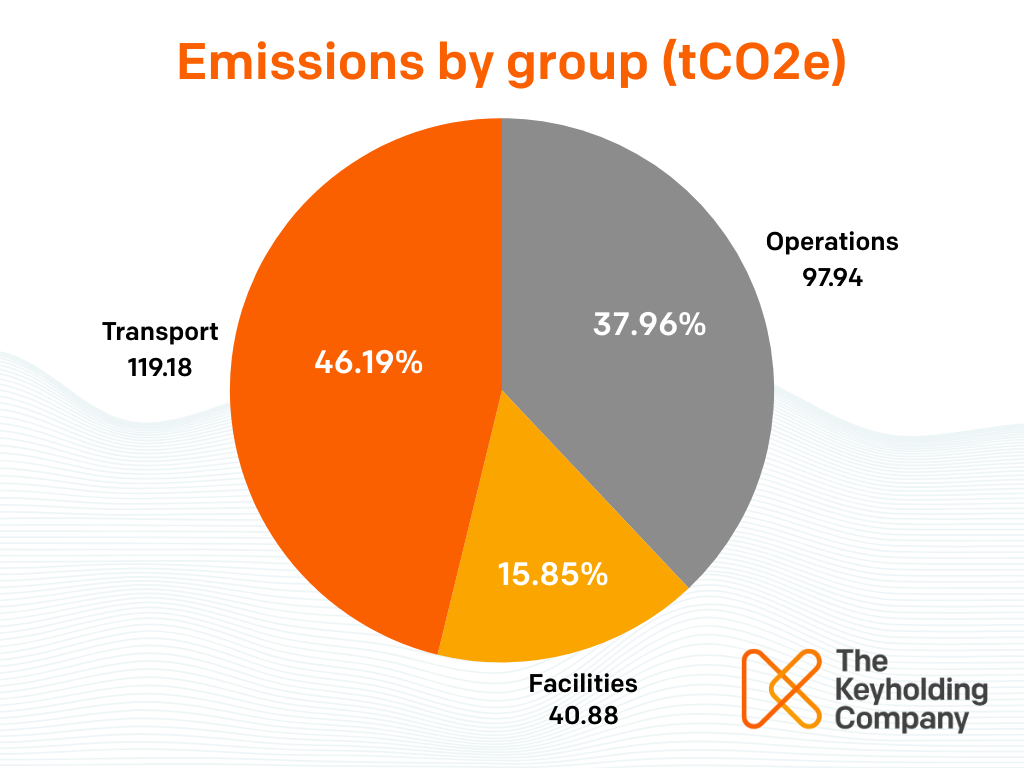
Procurement represented another 23% of emissions; a large percentage due to launching our new Enfield Control Room. Our aim is to improve purchasing processes by adhering to our ethical purchasing guide that prioritises local vendors and suppliers with a low-carbon footprint.
Perhaps most importantly, the audit process revealed some shortcomings in our emissions data monitoring related to outsourced facilities management in our three offices. We are working more closely with our facilities partners to implement thorough tracking that will provide full transparency and accurate energy and emissions data.
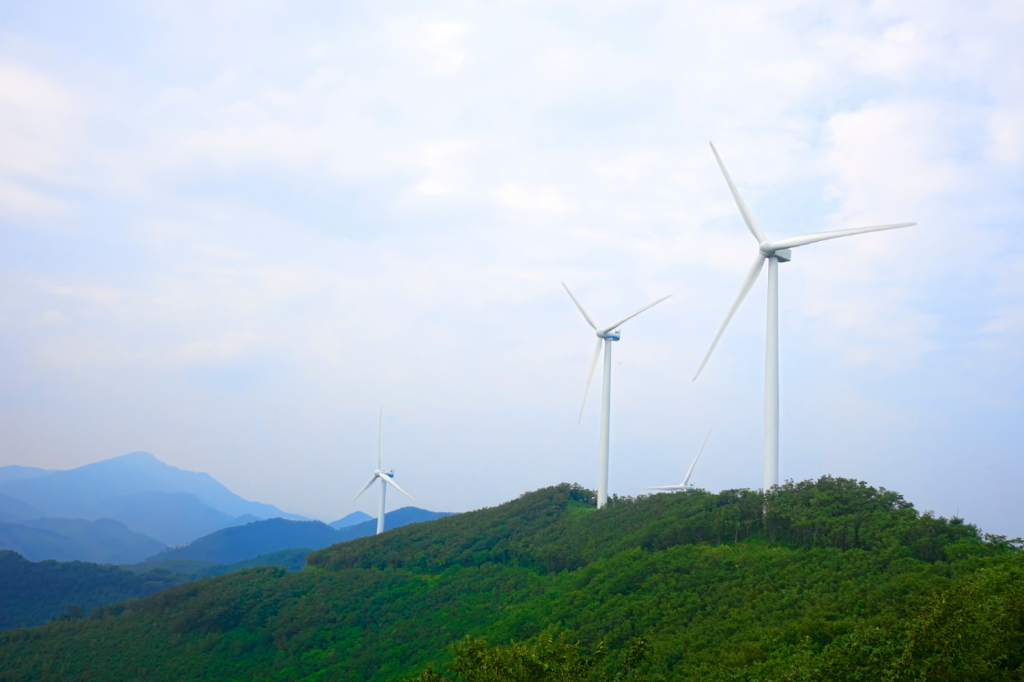
Offsetting projects
Underpinning our decarbonisation roadmap is our carefully calculated 2023 carbon offsetting strategy. Each year, we offset our emissions from the previous year, as well as the estimated vehicle emissions from the jobs our service partner network conducts on our behalf. This process makes us a carbon-neutral organisation.
TKC employees voted for three verified offsetting initiatives which are expected to reduce or remove nearly 3.5 million tonnes of emissions annually while supporting the UN’s Sustainable Development Goals.
Brazil Amazon Rainforest
The Evergreen REDD+ Forest Protection project protects 130,555 hectares of Amazon rainforest in Apuí, a critical deforestation hotspot. By promoting sustainable practices among local communities, it aims to reduce carbon emissions by 1.5 million tonnes annually for over three decades.

Cookstoves in Kenya
The Kenya High-Efficiency Cookstoves programme aims to distribute 500,000 clean cookstoves over 10 years, replacing hazardous open-fire cooking methods. This initiative is expected to reduce emissions by 1.5 million tonnes annually while improving health, gender equality and economic outcomes.
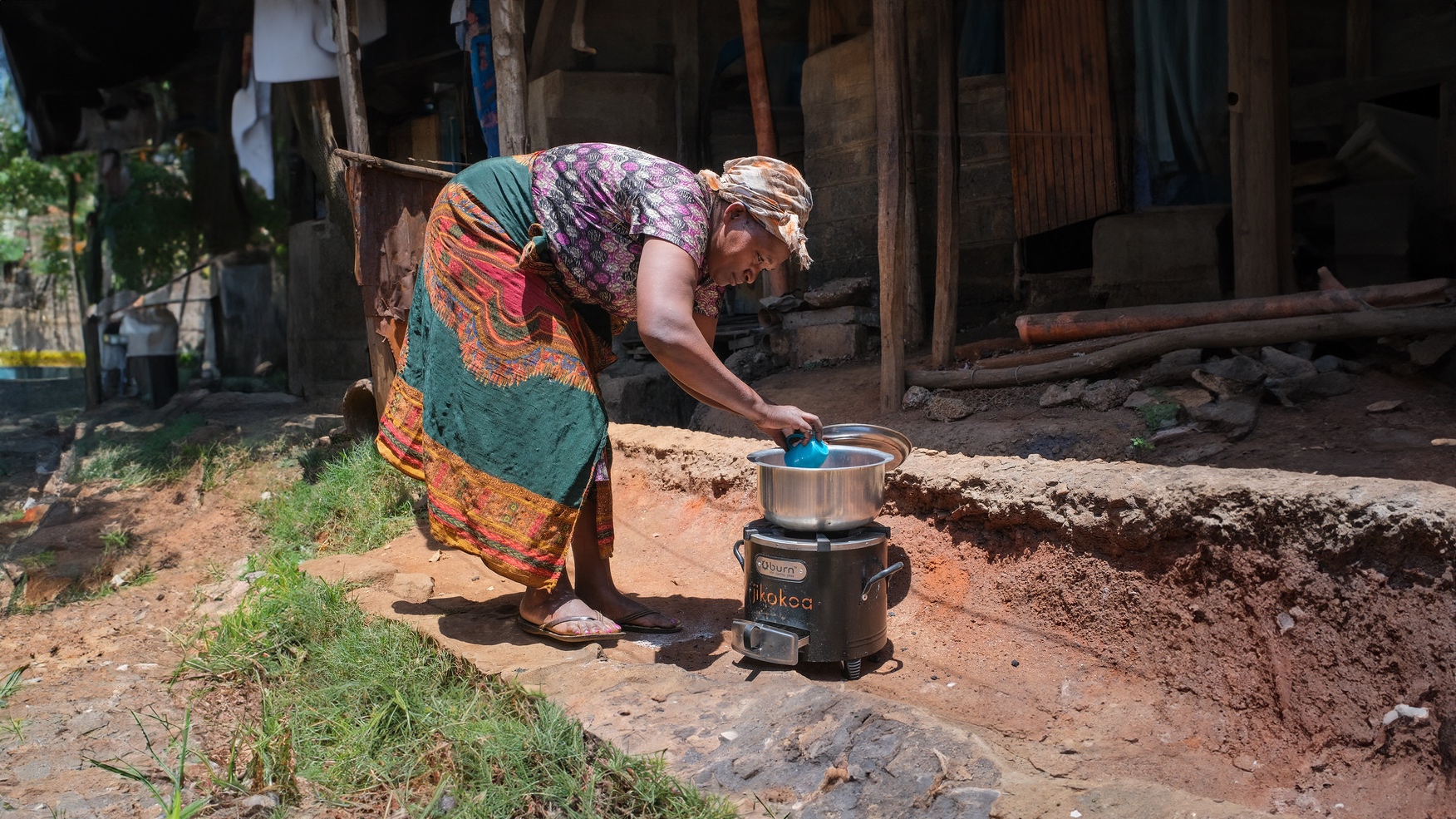
Solar power in India
A 120MW solar power initiative in India will generate clean electricity for over a decade. The India SolarArise project aims to displace 220,752 MWh of fossil fuel-based energy annually, reducing carbon emissions by 244,968 tonnes while providing affordable, sustainable power.
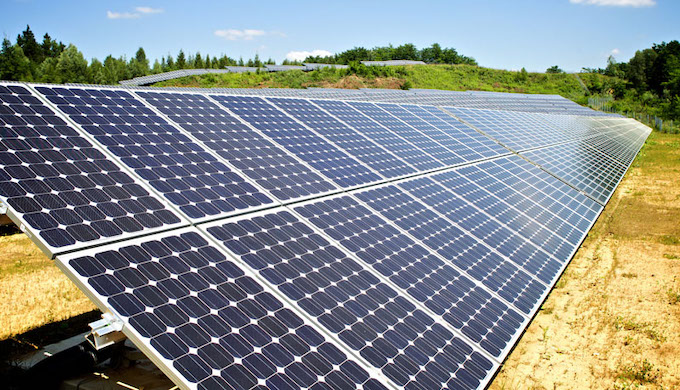
Leading by example
Our 2023 audit demonstrates that our focused sustainability efforts are having a quantifiable positive impact in reducing our carbon footprint. But it also makes clear that our journey is an ongoing one.
Following an in-depth analysis of our performance and projections, our revised commitments are:
- Achieve net zero for Scope 1 and 2 emissions by the end of 2025
- Halve our service partner network’s Scope 3 emissions by 2030
- Achieve net zero across all emissions Scopes by 2050 at the latest
In addition, we are officially aligning with the United Nations’ Race to Zero campaign by making the SME Climate Commitment this year and hope to become one of the first security companies in the UK to become B Corp certified.
Our commitment extends beyond minimising emissions to fostering accountability throughout our supply chain. We aim to inspire our partners and drive sustainable change across the security industry.
Delivering security with a conscience
Interested in how we can help you achieve your own ESG goals?
Get in touch

